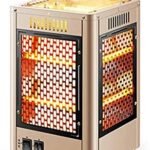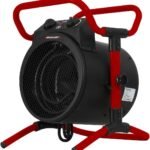Are you teetering on your decision to switch from a tank water heater to a tankless one? This write-up is just what you need to clear any doubts and make an informed choice. Embarking on this changing journey, you’re going to explore the pros and cons, differences and cost comparisons of owning a tank versus a tankless water heater. Gaining concise and direct insights about these heating systems could be the decider you’ve been waiting on!
Understanding Tank vs Tankless Water Heaters
Making the choice between tank and tankless water heaters can be a daunting task, especially if you are unaware of the key distinctions between these two systems. Let’s break this down in a friendly and easy-to-understand manner.
Definition of Tank Water Heater
A tank water heater is a traditional variety of water heating system you might be familiar with. It stores and heats a large volume of water (ranging from 20 to 80 gallons) within an insulated tank. The heated water is dispensed as required and replaced with cold water to be heated again maintaining a constant supply of hot water.
Definition of Tankless Water Heater
Contrary to the tank water heater, the tankless system, also called an on-demand water heater, only heats water when you need it. When you turn on a hot water tap, cold water travels through a pipe into the unit where it is instantaneously heated and sent to your faucet. In other words, it does not store a preheated reservoir of water, but delivers hot water on the go.
Basic Functioning of Each Type
The basic functioning of a tank water heater is simple. The cold water enters the tank, gets heated either by a gas burner or an electric element, and is stored until required. When you turn on a hot water faucet, hot water from the top of the tank is dispensed while new, cold water enters the bottom of the tank to be heated.
On the other hand, when a hot water tap is turned on in the case of a tankless heater, the incoming cold water triggers the heating element, be it gas or electric. The water is heated instantly and delivered directly to your tap. There is no need for a storage tank.
Energy Efficiency of Tank and Tankless Water Heaters
The energy-efficiency of a water heating system is a crucial element to consider when buying.
Energy Consumption in Tank Water Heaters
Although tank water heaters are effective in their job, they can consume a considerable amount of energy through ‘standby heat loss’. Since the hot water is stored in a tank, some energy is inevitably wasted on heating the water that is not in use.
Energy Efficiency in Tankless Water Heaters
Tankless water heaters are highly energy-efficient. They do not use any energy until the hot water tap is turned on, eliminating any standby heat loss. By heating water only when you need it, energy consumption can be significantly reduced.
Comparing Energy Efficiency Between Both Types
Comparatively, tankless water heaters are more energy-efficient than tank ones due to the absence of standby heat loss. They can be up to 24% to 34% more energy-efficient for homes that use 41 gallons or less of hot water per day. The savings are further magnified for larger homes that consume more hot water.
Installation Process for Tank and Tankless Water Heaters
Installation processes for both types have their own unique procedures and complexities.
Installation Procedure for Tank Water Heaters
The installation of a tank water heater is generally straightforward and less time-consuming. A professional plumber can help to install it in a few hours without any major changes to your current plumbing system.
Installation Complexity of Tankless Water Heaters
The installation of a tankless water heater is more complex, often requiring modifications to your plumbing and possibly upgrading your gas line or electrical system as well. It’s recommended to hire a professional to ensure safe and proper installation.
Necessary Modifications for Tankless Installation
Owing to the high power demand, a tankless water heater might require larger gas lines, a new venting system, or additional electric circuits. This can potentially increase the installation costs, but it is crucial for achieving the best performance and safety benefits.
Cost Implications of Tank and Tankless Water Heaters
There are both initial and long-term cost considerations to ponder in the tank vs tankless debate.
Purchase and Installation Cost of Tank Water Heaters
Typically, the upfront costs of purchasing and installing a tank water heater are less than a tankless one. However, the continuous energy usage can result in a higher cost in the long run.
Initial Costs Associated with Tankless Water Heaters
The initial costs for a tankless water heater – purchase and installation, are generally higher than a tank system. However, the energy efficiency and longer lifespan mean that the long-term cost might be less.
Long-term Cost Comparison Between Both Types
While tankless systems have a higher upfront cost, they can be more cost-effective in the long run due to their energy efficiency and extended lifespan. Tank units, on the other hand, have a lower initial cost but might result in higher utility bills over time due to standby heat loss.
Lifetime and Durability of Tank and Tankless Water Heaters
The expected lifespan and durability of both heater types is a significant factor to consider when making your choice.
Expected Lifespan of Tank Water Heaters
A typical tank water heater lasts about 10 to 15 years, depending on the quality of water in your area and the maintenance provided.
Durability and Longevity of Tankless Water Heaters
Tankless water heaters, on the other hand, can last up to 20 years or even longer with proper maintenance.
Maintenance Needs for Each Type
Both types of heaters require regular maintenance to function optimally and extend their lifespan. Tank heaters may need more frequent maintenance due to the possibility of mineral buildup in the tank. Tankless heaters, though, may need less frequent attention but require professional service when needed.
Size and Space Considerations for Tank and Tankless Water Heaters
Whether you live in a compact urban apartment or a spacious suburban home, the size of your water heater matters.
Space Requirements for Tank Water Heaters
Tank water heaters, due to their large size, require more space for installation and are usually installed in garages, basements, or utility closets.
Advantages of Compact Tankless Water Heaters
Tankless water heaters have an edge in terms of size. They are smaller and can be mounted on the wall to save floor space, making them ideal for smaller homes or apartments.
Possible Constraints with Tankless Heater Installation
While tankless heaters take up less space, they may require certain accommodations in terms of venting and fuel source access, which can sometimes limit where they can be installed.
Performance and Consistency of Tank and Tankless Water Heaters
Performance and consistency in delivering hot water are crucial in deciding the right water heater for your home.
Temperature Consistency in Tank Water Heaters
Tank water heaters can provide a steady output of hot water. However, once the stored water is depleted, you must wait for the tank to heat up again.
Hot Water Supply in Tankless Water Heaters
On the other hand, a tankless water heater offers continuous hot water supply depending on its flow rate capacity, as it heats water on demand.
Comparing Performance Between Both Types
In terms of consistency, tankless systems come out on top because they can continuously supply hot water, unlike tank units which can run out and need replenishing. However, the performance of a tankless heater can be impacted if multiple hot water outlets are used simultaneously.
Environmental Impact of Tank and Tankless Water Heaters
It’s important to weigh the environmental implications of your choice.
Environmental Impact of Tank Water Heaters
Tank water heaters, especially older models with less insulation, can be less eco-friendly due to standby heat loss which results in wasted energy.
Sustainability Factor of Tankless Water Heaters
Tankless water heaters are more energy-efficient and they also get a green thumb by reducing the amount of water wasted waiting for it to heat up.
Which Type is More Eco-Friendly?
Overall, tankless water heaters have a smaller carbon footprint, making them a greener choice. However, new tank water heater models are being designed with improved energy efficiency and will continue to improve.
Future and Innovation in Water Heating Technology
The water heating industry is constantly evolving with new advancements in technology.
Current Innovations in Tankless Water Heating
At present, tankless water heaters leverage advanced technologies that boost their efficiency and performance, such as modulating gas valves and smart technology integration for precise temperature control and customization.
Predicted Advancements in Tank Water Heating
Tank water heaters also continue to improve with innovative insulation materials and designs, built-in WiFi for remote monitoring and control, and advanced safety features.
Future Perspective in Water Heating System Choices
With the ongoing development and improvement of both tank and tankless water heaters, future choices in water heating systems would depend on the right balance between cost, energy efficiency, performance, and environmental impacts.
Conclusion: Choosing Between Tank and Tankless Water Heaters
Finally, making a choice between a tank and tankless water heating system depends on various factors.
Personal Factors to Consider
Your choice should be based on your household’s hot water needs, budget, available space, and long-term cost implications. Also, consider if you’re looking for a more eco-friendly heating solution, in which case a tankless system might be more beneficial.
Summary of Pros and Cons of Each Type
To sum up, tank water heaters are cost-effective up front, easy to install, and provide hot water consistently but occupy more space and have a shorter lifespan. Tankless systems on the other hand, are energy-efficient, compact, and have a longer lifespan, but carry higher upfront costs and complex installation requirements.
Final Verdict on Tank vs Tankless Debate
In conclusion, there is no one-size-fits-all verdict in the tank vs tankless debate. It comes down to your specific needs and circumstances. Whatever your choice is, ensure it provides you a steady hot water supply, efficiency, and matches your budget and lifestyle for many years to come.









